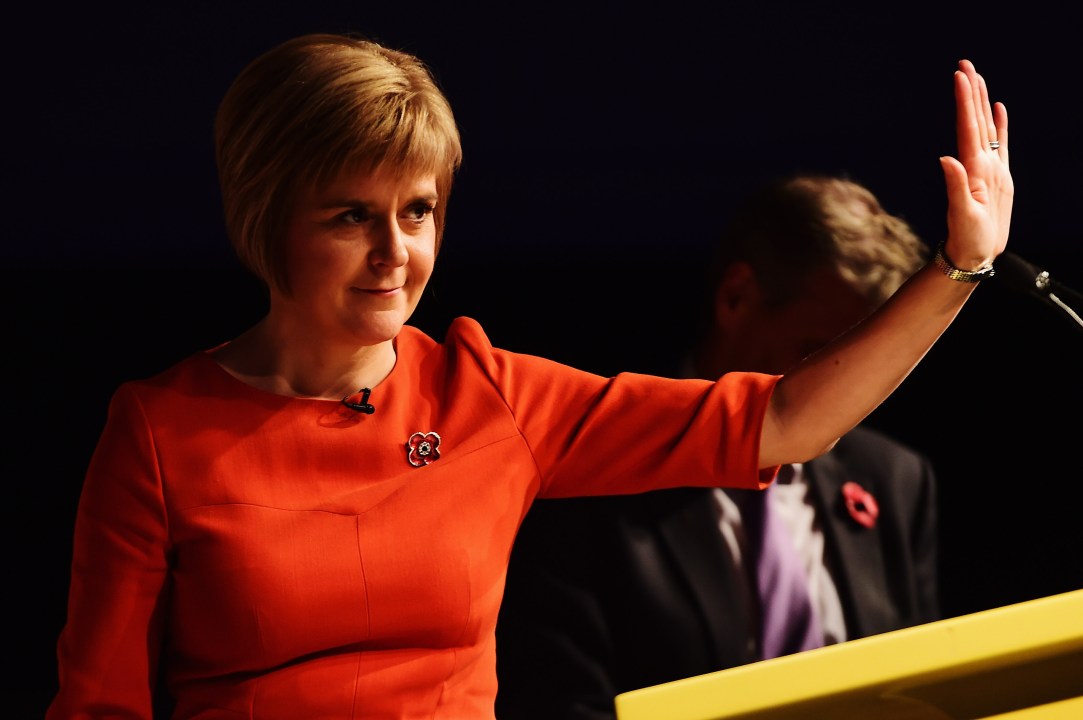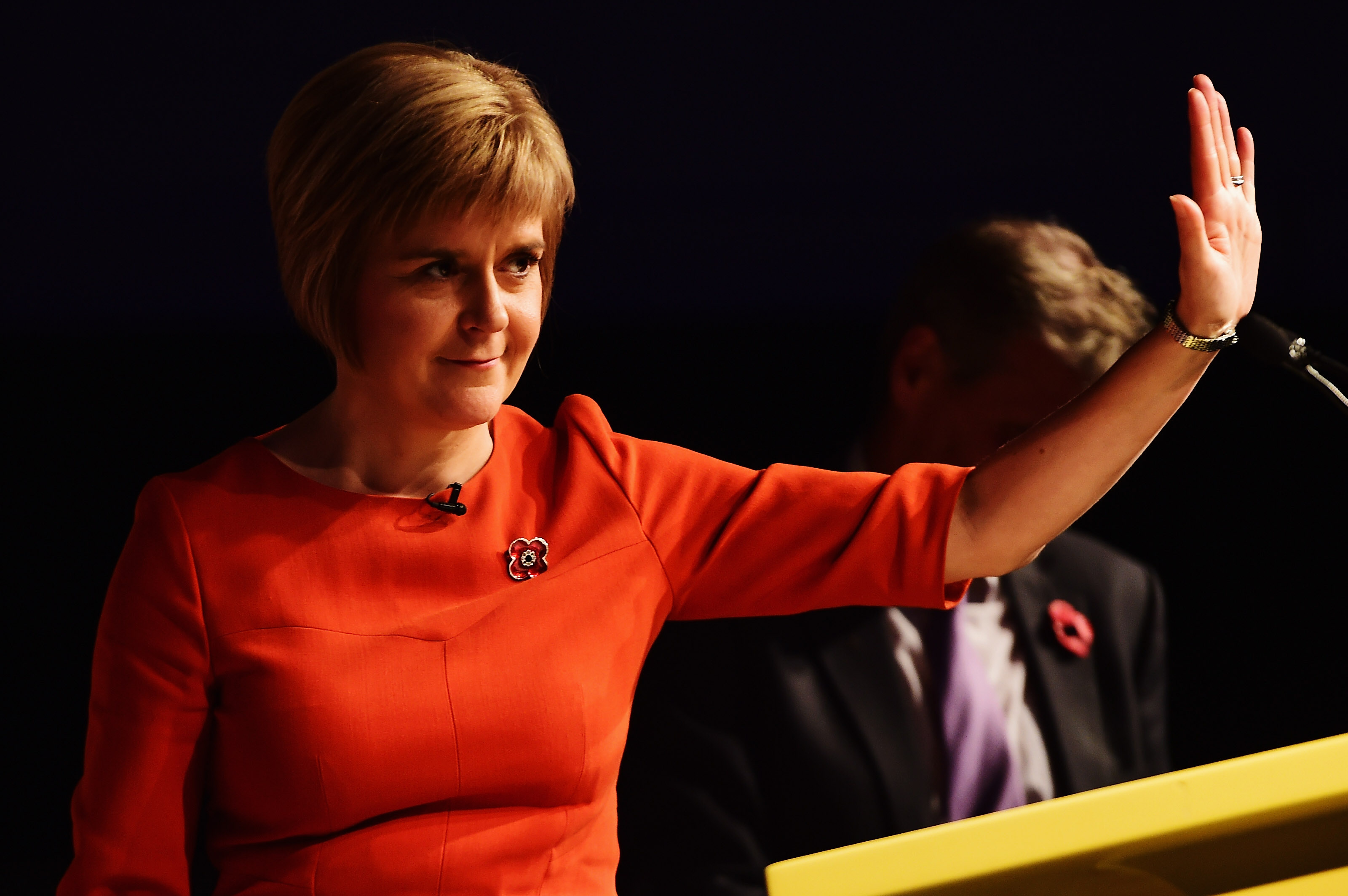Oh look, it’s a Neverendum. Who could have predicted that the SNP (and the wider Yes movement) would treat defeat in the independence referendum as just a temporary set-back? Well, some people did. Here’s a thing from April:
55-45 will now be reckoned a decent result [for Unionists] but it’s not an outcome that will settle the matter. Not even for a generation.
Of course, during the campaign itself the Nationalists had to pretend that a No vote would put the question of independence to bed for a generation. They were kidding and anyone who chose to believe assurances that the SNP had no desire for a Neverendum is guilty of egregious gullibility.
Because without independence what is the SNP for? What else binds its disparate parts together? What else settles all other arguments? What else justifies any number of sacrifices and compromises in pursuit of the ultimate prize?
The Nationalists gather in Perth for their annual conference today and, far from being downcast, they are in rampant form. Pound for pound – or, rather, per capita – the SNP is now the largest political party in Britain. Indeed, it’s the only one that can plausibly claim to be a mass organisation. That’s quite something.
The kind of thing that makes one wonder if – just perhaps – next year’s election in Scotland could produce results of the kind seen in Ireland in 1918. John Redmond’s Home Rule bill was passed in 1914 but its implementation delayed by the First World War. Then there was the small matter of Easter 1916 and, most importantly, the British authorities’ cack-handed response to Pearse’s provocation. It all helped to ruin the Irish Parliamentary Party. They lost 61 seats in 1918 as Sinn Fein won a landslide victory in southern Ireland, gaining 67 seats and winning almost 47 percent of the vote.
At the moment – and, sure, it’s just at the moment – the polls suggest the SNP will achieve comparable results in Scotland next year. Once upon a time the party insisted that winning a majority of Westminster seats would constitute a mandate for independence. If that is no longer the case – simply because the referendum has set a precedent – it is also true that it is hard to imagine circumstances in which the party would not reckon another Holyrood majority in 2016 would be justification enough for another referendum. At the very least, the new membership will expect this.
In other words, a generation now lasts about three years.
It need not even be an SNP majority either, merely a majority of MSPs. The Greens and, perhaps, the Socialists will be represented in the next parliament and might lead little encouragement to endorse another referendum. And if Holyrood wants another referendum can Westminster really deny it?
There are, for sure, risks in such an approach. It could easily encourage anti-SNP tactical voting. That would be a novelty since in 2011 the Nationalists were the beneficiaries of tactical voting designed to prevent Labour from making an entirely un-earned return to power. (Reader, I added my own small pebble to that cairn. Ah well.)
So it’s not a surprise that Alex Salmond has taken to citing WB Yeats. The new SNP is a terrible beauty too and Scotland is changed, changed utterly. The party’s revolutionary zeal, if we can call it that, has been encouraged by defeat. It is only a matter of time before Scotland will demand another vote; only a matter of time before she becomes an independent nation once again. It is merely a question of try, try and try again.
That, at any rate, is what the SNP leadership believes. The cause endures, the fight goes on. The Westminster election is a means of holding Unionist feet to the fire and, to that end, non-SNP members will be encouraged to stand for the nationalists. A Yes Alliance to destroy the Scottish Labour party and send an unequivocal message south of the border.
In this respect, the general election will be 59 mini-referendums on the national question. The Nationalists are making a big bet; the question is whether Unionists have the funds to call it without risking everything. (They may not.)
A gamble, then, but not a reckless one. It doesn’t help – from a Unionist perspective – that so many English Tory MPs evidently relish the idea of Labour losing seats to the SNP. Labour’s Scottish difficulty is England’s Tory opportunity and all that. Viewed from the particular, peculiar, perspective of Scottish Unionism it seems clear that, in terms of the Union, a Labour victory in May is a better outcome than a second term for David Cameron. God help us.
Nor does it help to have fat-headed Admirals suggesting the Royal Navy’s new frigates might not actually be built on the Clyde. With friends apparently determined to stoke Scottish grievances the Union has no need for enemies. Indeed, if it’s lost it’s as likely to be lost in London as in Scotland.
Despite what Alex Salmond says, it is far from clear that the much-ballyhooed Vow really made much difference to the final outcome. I doubt it changed half a million minds. It was, however, a larger hostage to fortune than any previous promises made by the Unionist parties. If they think it can now be forgotten they are sorely mistaken. It has taken on a mythic life of its own.
Perhaps this is too pessimistic a diagnosis. It is possible that this is as good as it will get for the SNP. Possible that the only way from here is down. Possible that hubris will get the better of the Nationalists. It may be that they over-estimate public enthusiasm for endless constitutional warfare.
But if they are to be beaten they will need to be beaten by Labour. Which means the right leader in Scotland and a better leader in Westminster. The first of those remains possible, the second seems disastrously unobtainable.
Ordinarily it might be difficult to wriggle free from the promise that the referendum would settle the question for a generation. These are not ordinary times, however.
I never expected the SNP to go away or shut up after defeat but then I always thought the referendum would be a close-run thing. The Nationalists have a plan for what comes next and it is quite evidently the case that Unionists do not. Which is one more reason why, far from settling the Scottish Question, the referendum looks like becoming the Neverendum. Until, that is, the Nationalists win. That result will be permanent. Because the rules for one side are not the same as the rules applying to the other. This may be unfair but it’s just the way it is.








Comments